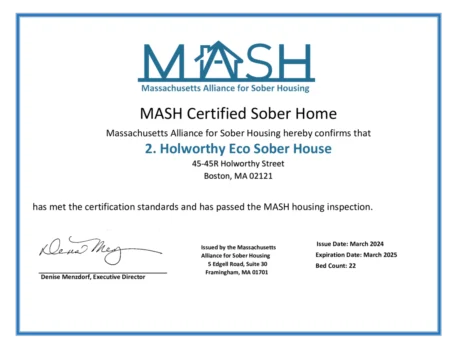Substance Use Disorders in Older Adults: A Growing Threat

Adults who have substance use disorders (SUDs) may develop more physical and psychosocial needs as they age. Providers working with adults with SUDs have an increasing need to know where to find the necessary information to coordinate and support these clients’ care across major life areas as these clients age. This resource compendium is designed to complement the strategies discussed in other chapters of this TIP. Because SUD is a chronic condition, this compendium contains a selection of validated tools to choose from to help overcome the many challenges with identifying SUD in older clients, intervene, and see older adults through recovery and maintenance. No screeners have been statistically validated for assessing prescription or over-the-counter (OTC) medication misuse that would identify accidental misuse or noncompliance issues.
Dwindling Social Support
This website provides information about SIS’s history, focus, and annual conference. It also has a list of meetings where older adults who misuse alcohol can meet for fellowship, help with cutting down or quitting alcohol consumption, and education on the unique problems alcohol misuse causes their age group. Limited access to specialized treatment programs tailored to the needs of older adults is also a significant barrier. Many addiction treatment centers are geared towards younger populations, leaving seniors feeling out of place or misunderstood. As our bodies age, aches and pains become more frequent, and managing them can be a slippery slope. The line between pain management and dependency can blur, especially when dealing with powerful prescription medications.
How to Get Help if You Have a Substance Abuse or Addiction Issue
As we delve into this complex issue, it’s crucial to understand that addiction doesn’t discriminate based on age. In fact, the prevalence of substance abuse among seniors is alarmingly high, with estimates suggesting that up to 17% of adults aged 65 and older struggle with alcohol or drug misuse. This statistic alone should give us pause and prompt us to examine the unique challenges faced by older adults grappling with addiction. Sex can be a risk factor for substance abuse, especially alcohol abuse, in older adults.
Defining Substance Abuse and Addiction
Physical health issues (e.g., severe liver disease) that affect whether medications can be given for certain SUDs, such as opioid use disorder. Help clients understand the need to change their substance misuse and help them increase their desire to change. Other special physical and mental factors (e.g., whether a mental or physical disorder is present that could be making the person’s substance-related symptoms worse). You should not use PCL cutoff scores when interpreting scores from the PCL-5. The SAMI330 is a five-item questionnaire for older adults who may engage in risky alcohol use.
- When considering referral for treatment, first consider the client’s thinking abilities.
- Share resources and information with clients as needed to keep them safe and feeling supported.
- Periodically review the ongoing need for the opioid medication, and consider whether the dose can be reduced, tapered, or discontinued.
- However, it’s crucial that medications are carefully managed to avoid potential interactions with other prescriptions.

Client education is a process of information exchange over time, not a single event. Information exchange can help you build a closer relationship with clients through a deeper understanding of their own experiences with making health behavior changes. If the information has an impact and clients are ready to act, brainstorm activities that they think are fun, easy, accessible, and personally relevant.
- Understand the relationship between substance misuse and depression, anxiety, trauma, and problems with thinking (also called cognitive impairment).
- This is why it’s vital for older women – and all people – to enjoy alcoholic beverages and other substances responsibly and mindfully.
- Keep in mind that almost all clients will have mixed feelings about their substance use.
Alcohol and Drug Use Screening
The sections do not cover questions about a client’s recreational, military, occupational, or avocational/retirement history. Full mental health, medical, family, vocational, social, sexual, financial, legal, substance use, and SUD treatment histories. Refer high-risk clients to a program where specialized SUD treatment services are available, if possible.

Family, friends, and doctors often don’t know when older people have a problem with alcohol and drugs. Once you retire, problem drinking or drug use doesn’t interfere with your job. Sometimes, people notice but ignore it, thinking it’s best for older people to keep doing what substance abuse in older adults makes them happy. Drug and alcohol abuse have impacted seniors in the United States as it has among younger Americans. Over 5,000 people ages 65 and over in the U.S. died of a drug overdose in 2020, and more than twice that many (11,616) died of alcohol-induced causes.
Drugs & Supplements
Chapter 9 offers comprehensive resources on substance misuse in older adults. It is divided into sections on general resources and resources for supervisors and administrators, https://ecosoberhouse.com/ for providers, and for clients and families, with a final section on provider tools. Ultimately, we must encourage a holistic approach to addiction treatment in seniors.
Ask clients what they think of this information and how it affects their level of interest in or readiness to engage in health promotion activities. Ask for support from family members or tech-savvy friends who can help set up a computer, tablet, or cell phone; teach them how to safely use social media and other apps; and provide ongoing support in their use of technologies. Family members often provide most of an older adult’s basic social support.

